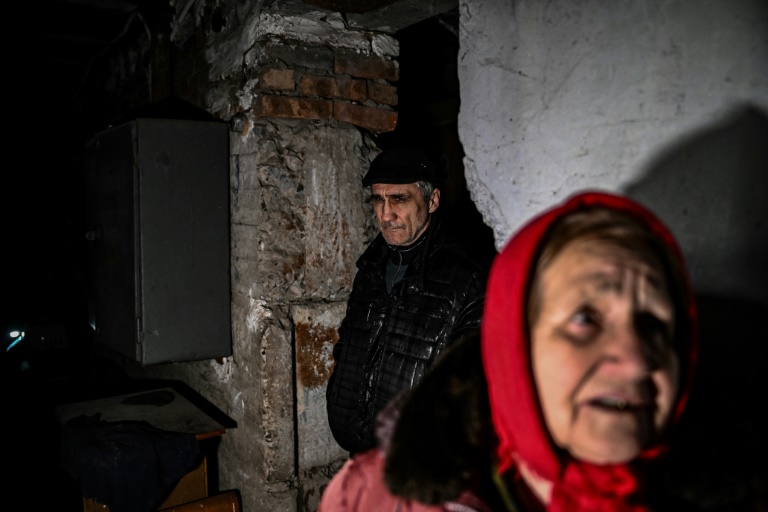Ukraine and its leader Volodymyr Zelensky are running out of options as they try to withstand Russian military advances that could shrink their country for the second time since 2014.
Russia President Vladimir Putin defied Western warnings and approved sending troops into eastern Ukraine on Monday to support two rebel regions’ independence claims.
World powers are still trying to decide whether Putin’s deployment of so-called “peacekeepers” constitutes the feared invasion they warned would trigger potentially crippling sanctions.
The danger of punishing Russia too severely now is that this would leave the West with few means of reprisal should Putin order in the bulk of the 150,000 soldiers now said by Kyiv and Washington to be encircling Ukraine.
But analysts say Kyiv’s Western-backed leader faces an even bigger dilemma.
Pundits believe Zelensky cannot be seen by the public to be bowing before Putin’s unilateral decision to take a chunk of Ukraine under his wing.
But he can also ill afford to challenge Russia’s far superior armed forces or risk an even bigger war breaking out across his vast former Soviet state.
“Zelensky’s options have seriously narrowed,” said Kyiv’s Penta political studies centre director Volodymyr Fesenko
“The main objective now is to avert a big war.
The main goal is to keep the war from spreading beyond the current front.”
– Memories of Crimea –
Ukrainians are still haunted by how Putin secretly sent soldiers — dubbed “little green men” because they wore no insignia — into Crimea in a stealth annexation in 2014.
The Kremlin urged Ukrainian troops stationed on the peninsula at the time to either switch sides or get out.
Ukraine lost almost its entire Black Sea fleet and the whole region without firing a shot.
Independent political analyst Mykola Davydyuk said Zelensky’s political career would end quickly should Ukraine capitulate to Russian forces in the same way.
“If he now starts making concessions to Russia, he will not be able to hold on to the presidency,” Davydyuk said.
Zelensky delivered a punchy message on Tuesday in which he pledged to immediately review breaking off diplomatic relations with Moscow.
He also impassionately argued that the West had every reason to sanction Russia with full force today.
“Legally, I believe the aggression has already started,” Zelensky told reporters.
“We should not wait for it to start, because the first steps of this aggression have already been taken.”
– ‘A real war’ –
It is less clear what Ukraine can do against Russia on the battlefield.
Ukraine’s forces are positioned across a frontline that splits the rebel-run parts of the Donetsk and Lugansk regions from those under government control.
Putin implied on Tuesday that his recognition covered the broader region that included the Kyiv-controlled areas.
That could potentially set the stage for the first direct clash between Russian and Ukrainian forces since the two became independent post-Soviet countries in 1991.
But Putin stressed that he wanted “all contentious issues” revolving around the border resolved through talks.
Few genuinely expect Ukraine to launch an offensive should Russian forces flood into rebel-held lands.
But the Ukrainian army has been bolstered by years of Western backing that has turned into a more muscular force than the one that first started fighting the insurgents eight years ago.
“There will not be a repeat of what happened in Crimea.
There will be no retreat or concession of land,” Fesenko said.
“Yes, this would be a real war. It is sad but something that everyone must understand.”
– ‘Raising the stakes’ –
Putin preceded his independence proclamation with a remarkable television address that at various points questioned Ukraine’s right to be called an independent state.
“A stable statehood has never developed in Ukraine,” Putin declared.
Democracy House think tank analyst Anatoliy Oktysyuk said Putin was delivering a blunt message to Kyiv that he will not accept its pro-Western course.
“It is now clear that Putin will not let go of Ukraine,” said Oktysyuk.
“He is raising the stakes.”
Analysts believe Ukraine’s long-term response to this lingering threat could define the shape of European security and Western relations with Moscow in the years to come.
“Putin’s address was a declaration of war, not a declaration of the separatists’ independence,” said Davydyuk.











